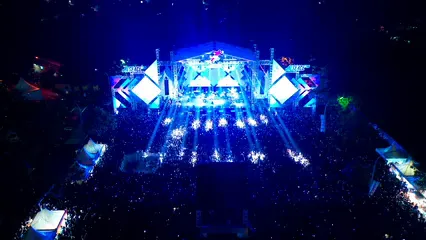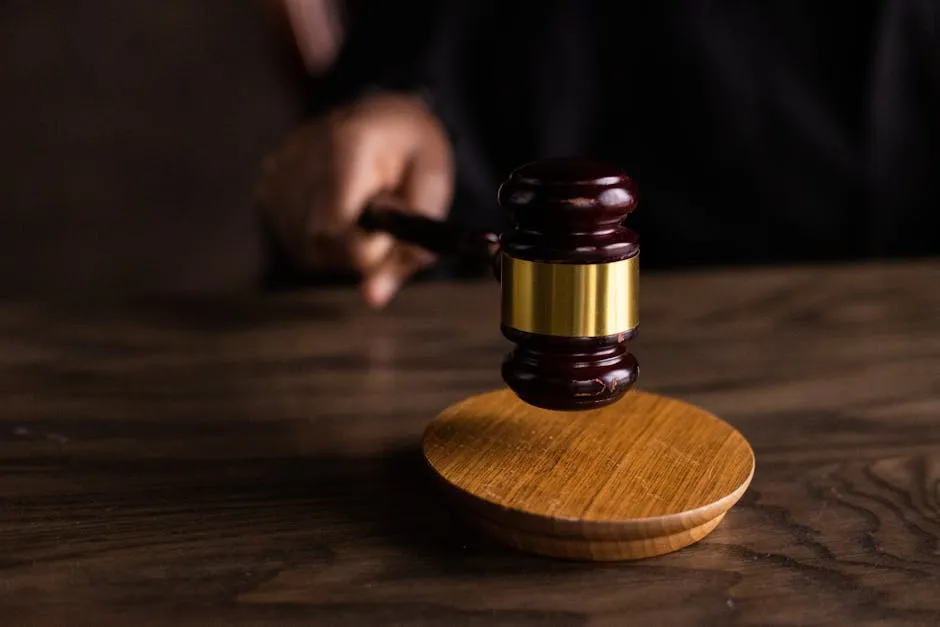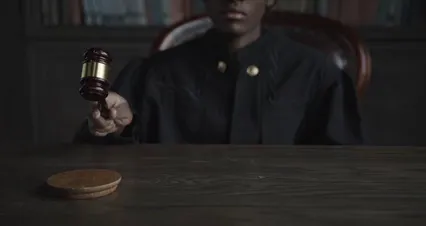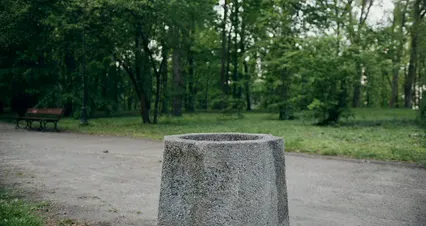
Why Do Celebrities Engage in Illegal Actions?
Introduction
Have you ever wondered why some celebrities engage in illegal behaviors? This phenomenon raises eyebrows and sparks curiosity. It’s not just about the celebrity; it reflects larger societal issues. Understanding their motivations helps us make sense of their actions.
If you’re looking to dive deeper into the complexities of fame, consider checking out “The Fame Game” by Kristen Roupenian. This book explores the intricacies of celebrity and societal expectations, making it a perfect companion to our discussion.
Summary and Overview
This article examines various factors leading celebrities to break the law. The public’s fascination with celebrity culture often intertwines with crime. We’ll explore psychological, social, and economic factors driving these actions. Additionally, we’ll discuss the consequences for both celebrities and society at large. By diving into these aspects, we aim to shed light on this intriguing topic.
For those interested in the psychology behind fame, Dr. Karen M. Kinsella’s “The Psychology of Celebrity” offers fascinating insights into the mental processes behind celebrity culture.

Factors Influencing Celebrity Criminal Behavior
Psychological Pressures
Celebrities often face immense mental health challenges. The pressures of fame can lead to anxiety, depression, and substance abuse. It’s no surprise that many public figures struggle in silence. Research shows that around 20% of celebrities report mental health issues. This stark statistic suggests that the glitz and glamour of fame come with hidden costs.
One interesting aspect is celebrity worship. Fans often develop intense, one-sided relationships with their idols. This form of attachment can create unrealistic expectations. When celebrities fail to meet these expectations, the fallout can be devastating for them. Such dynamics can lead to poor decision-making, sometimes resulting in illegal actions.
Additionally, parasocial relationships—where fans feel a connection to celebrities—can exacerbate these pressures. Fans may feel they know celebrities intimately, yet these relationships lack mutual understanding. This discrepancy can leave celebrities feeling isolated and misunderstood. The emotional toll can push some toward risky behavior as they seek relief from their stress.
To cope with such pressures, many turn to self-help resources. Consider exploring the “Addiction Recovery Workbook” or “The Mental Health Handbook” to gain valuable insights into managing mental health challenges.

Fame and Its Discontents
The allure of fame often breeds a sense of invincibility. Many celebrities believe they are above the law. This mindset can lead to reckless behavior. For instance, a high-profile celebrity might think they can escape consequences due to their status. Ego and entitlement can cloud judgment, fostering a culture of impunity.
Take Justin Bieber, for example. Following his rise to fame, he faced multiple legal issues. His antics, like reckless driving and public disturbances, stemmed from a belief that he could get away with anything. This sense of invulnerability can be a dangerous mindset, ultimately leading to legal trouble.
Another case is that of Chris Brown. His history of violence raises questions about accountability among celebrities. Despite numerous allegations and legal battles, he continues to thrive in the industry. Such examples illustrate how fame can warp perspectives and diminish the perceived seriousness of illegal actions. Ultimately, the combination of psychological pressures and the intoxicating effects of fame can create a perfect storm, pushing celebrities towards criminal behavior.
The Culture of Celebrity
Celebrity culture is often tied to a world of excess. Society tends to glamorize fame, attributing a sense of invulnerability to those in the spotlight. This can create unrealistic expectations and normalize certain behaviors that would otherwise be frowned upon. When celebrities engage in questionable actions, their fans may view such behavior as acceptable or even aspirational.
Studies have shown that celebrities significantly influence public behavior. For instance, when stars flaunt wealth or engage in risky activities, it can lead fans to mimic these actions. This phenomenon raises important questions about accountability and the societal impact of idolizing public figures. Are we, as a society, inadvertently endorsing reckless behavior through our fascination with fame?

Legal System and Celebrity Privilege
Disparities in Sentencing
The legal system often treats celebrities differently than the average person. Notable examples include Ted Kennedy and Justin Bieber. Kennedy faced minimal consequences after a tragic incident in 1969, while Bieber received a slap on the wrist for multiple offenses. Such disparities can shape public perception of justice, leading to cynicism about the legal system’s fairness.
Statistics reveal stark differences in sentencing for similar crimes. Research indicates that celebrities often receive lighter sentences compared to ordinary individuals. This trend raises ethical concerns about equality before the law. When the rich and famous evade serious consequences, it sends a troubling message: some are above the law. Such leniency can undermine trust in the legal system, making the public question its integrity. The call for reform is clear—justice should be blind to fame and fortune.

The Role of Wealth and Influence
Celebrities often enjoy significant financial resources. This wealth allows them to hire the best legal teams. With top-notch representation, they can navigate legal challenges more effectively than average individuals. For instance, high-profile lawyers can negotiate plea deals or reduced sentences. This creates a perception of privilege, where money can influence justice.
Moreover, public relations play a crucial role in shaping legal outcomes. Celebrities can hire PR experts to manage their public image. This strategy often helps mitigate backlash from legal issues. A well-crafted narrative can sway public opinion and even influence juries. When the media portrays a celebrity positively, it can impact their legal standing.
Consider the case of Justin Bieber. His numerous legal troubles received extensive media coverage. However, he often managed to emerge with minimal consequences. His celebrity status, combined with effective PR, helped maintain his brand. Similarly, Ted Kennedy faced little punishment after a tragic incident in 1969. These examples illustrate how fame and resources can lead to vastly different legal outcomes.

Media Influence and Public Perception
The Role of the Media
Media coverage of celebrity crimes plays a pivotal role in shaping public perceptions. Sensational headlines often dominate news cycles, focusing on the scandal rather than the crime itself. This sensationalism can lead to divided opinions among the public. Some fans may even defend their favorite stars, overlooking serious allegations.
Moreover, the way media frames these stories can affect legal outcomes. Positive portrayals can create an image of innocence or victimhood. Conversely, negative coverage can tarnish a celebrity’s reputation. The media’s choices can influence jury pools and public sentiment alike.
Take the example of Chris Brown. His legal troubles were front-page news, yet he maintained a loyal fan base. The media’s focus on his music career rather than legal issues allowed him to recover. This demonstrates the complex relationship between media portrayal and legal implications. Ultimately, how the media covers celebrity crimes significantly impacts public perception and can affect the outcomes of legal proceedings.

Fan Reactions and Social Media
Fans often react strongly to celebrity misbehavior. Social media amplifies these reactions, creating immediate buzz. When a celebrity faces controversy, the online community often divides into supporters and critics. This interaction can be intense, with hashtags trending in real-time.
Cancel culture plays a significant role in how we perceive these actions. Many fans demand accountability, leading to public outcries. The consequences can range from loss of endorsement deals to fan backlash. A 2020 survey found that 52% of people believe celebrities should face consequences for their actions.
Public opinion is complex. While some fans may defend their idols, others feel betrayed. This duality reflects the emotional investment many have in celebrity culture. Ultimately, social media has transformed the landscape of celebrity accountability, making it easier for fans to voice their opinions.

Case Studies of Celebrity Crimes
High-Profile Examples
Felicity Huffman became infamous for her involvement in a college admissions scandal. She was accused of paying for her daughter’s entrance exam to be tampered with. Public reaction was swift and harsh. Many felt betrayed by her actions, especially as she was a role model to many. Ultimately, Huffman served only 11 days in prison and paid a fine of $30,000.
In the wake of such scandals, many look for guidance on personal growth. A “Mindfulness Meditation for Beginners” can help individuals cope with stress and anxiety, which are often exacerbated by public scrutiny.

Chris Brown is another high-profile example. His history of violent behavior, including a notorious incident with Rihanna, sparked outrage. Despite multiple legal troubles, he continues to have a successful music career. Fans remain divided, with some defending him and others calling for accountability. The disparity in public reactions highlights the complexity of celebrity culture.
Patterns of Behavior
Certain patterns emerge among celebrities involved in illegal activities. Substance abuse is a common issue. Many celebrities struggle with addiction, often exacerbated by fame. A study revealed that 60% of celebrities face some form of substance-related issues, leading to risky behavior.
Psychological motivations can drive these patterns. Fame creates immense pressure, leading to anxiety and depression. Celebrities may turn to substances as a coping mechanism. Additionally, the desire for attention can lead to reckless actions. These patterns illustrate the darker side of celebrity life, raising questions about mental health and support systems.
For those seeking to improve their mental health, consider utilizing a self-help book on anxiety to help navigate these feelings.

Conclusion
In summary, the actions of celebrities often spark intense reactions from fans. Social media amplifies public opinion, creating a complex landscape of support and criticism. High-profile cases like those of Felicity Huffman and Chris Brown reveal patterns of behavior linked to fame and mental health challenges. As we navigate this topic, it’s essential to reflect on the societal implications of celebrity crime. Understanding these dynamics fosters a more balanced perspective on celebrity behavior and its impact on culture.

FAQs
Why do celebrities often evade serious legal consequences?
Legal disparities and influence of wealth play a significant role.
What psychological factors contribute to celebrities committing crimes?
Mental health issues and fame-related pressures significantly influence behavior.
How does media coverage affect celebrity legal cases?
Sensationalism shapes public opinion and can influence legal outcomes.
Are there any statistics on crime rates among celebrities compared to the general public?
Studies indicate that celebrities face different sentencing standards.
How can society address the issues of celebrity crime and its implications?
Potential reforms in media practices and legal standards are necessary.
Please let us know what you think about our content by leaving a comment down below!
Thank you for reading till here 🙂
All images from Pexels




